Disabling the School-to
Prison Pipeline
Critical Issues in Disabilities and Education
Series Editor: Eric Shyman, St. Josephs College
The social, legal, and political history of persons with disabilities in the United States as well as internationally has been significant, especially in the areas of social justice, civil rights, and cultural inclusion. This series will focus on various critical perspectives on issues involving the social, political, and cultural experiences of people with disabilities. Manuscripts in this series will address topics such as: (1) legal developments (such as issues with the Americans with Disabilities Act, Individuals with Disabilities Education Act, Education for All, and others) at both the national and international level; (2) social and cultural models of disability and its outcome on the inclusion and/or exclusion of individuals with disabilities; (3) the benefits and challenges of the current educational system for children and adolescents with disabilities, including specific methodologies and categories of students (e.g., educational approaches for students with Autism Spectrum Disorder, inclusive education for students with disabilities, etc.); (4) philosophical perspectives of special education/education for students with disabilities; (5) issues regarding transitional support services and approaches to community support for adults with disabilities. This series would be open to scholars representing education, psychology, sociology, philosophy, human relations, business and management, cultural anthropology, speech and language pathology, and medical sciences (among others). Manuscripts published in this series would be appropriate for use in scholarship and coursework at colleges and universities, as well as be written in a way to be accessible and appealing to a general intellectual audience.
Titles in the Series:
Disabling the School-to-Prison Pipeline: The Relationship Between Special Education and Arrest, by Laura Vernikoff
Contemplating Dis/Ability in Schools and Society: A Life in Education, by David J. ConnorReconceptualizing Disability in Education, by Luigi Iannacci
Disabling the School-to
Prison Pipeline
The Relationship between Special
Education and Arrest
Laura Vernikoff
LEXINGTON BOOKS
Lanham Boulder New York London
Published by Lexington Books
An imprint of The Rowman & Littlefield Publishing Group, Inc.
4501 Forbes Boulevard, Suite 200, Lanham, Maryland 20706
www.rowman.com
6 Tinworth Street, London SE11 5AL, United Kingdom
Copyright 2021 The Rowman & Littlefield Publishing Group, Inc.
All rights reserved . No part of this book may be reproduced in any form or by any electronic or mechanical means, including information storage and retrieval systems, without written permission from the publisher, except by a reviewer who may quote passages in a review.
British Library Cataloguing in Publication Information Available
Library of Congress Cataloging-in-Publication Data
Library of Congress Control Number: 2021933346
ISBN: 978-1-7936-2417-8 (cloth : alk. paper)
ISBN: 978-1-7936-2418-5 (electronic)
 The paper used in this publication meets the minimum requirements of American National Standard for Information SciencesPermanence of Paper for Printed Library Materials, ANSI/NISO Z39.48-1992.
The paper used in this publication meets the minimum requirements of American National Standard for Information SciencesPermanence of Paper for Printed Library Materials, ANSI/NISO Z39.48-1992.
Contents
This book would not be possible without the help and support of many more amazing people than I have space to name here. I am grateful to my amazing dissertation committee, who helped make this a much more rigorous and ethical study than it would have been otherwise: Michael G. Wilson, Michelle Knight-Manuel, David J. Connor, and Elizabeth Tipton. Many thanks also to Lin Goodwin for your continued mentorship, and to Carolyn Riehl for expanding my researcher horizons. Thank you to Nancy Lesko and Srikala Naraian for all of your guidance and help over the years, too. I am also extremely lucky to have worked with many amazing scholars on research teams over the years to improve my research and academic writing skills.
Many thanks to Eric Shyman and the anonymous reviewer who read drafts and made helpful suggestions. This book is much improved from your input. Thank you to Acquisitions Editor Holly Buchanan for helping me throughout this process.
This book would, of course, not be possible without the contributions of the young participants who generously gave their time to speak with me during particularly challenging times in their lives. Many thanks, also, to the adults who helped me recruit participants despite the pressures of their demanding jobs. Thank you to the New York City Department of Education, New York State Education Department, and New York University Research Alliance for making data available for this and other research projects.
I am fortunate to come from a large extended family of educators and people who work toward equity and justice for people with disabilities. Special thanks to my favorite father, Steven Vernikoff, for typing up my very first stories for me when I was a little girl, and also for all of the conversations about disability rights and disability advocacy over the years. Thanks to my aunt Sharon OConnor for sending me her first-day-of-school resources for my first-ever day of teaching, and to my aunt Maureen OConnor for being my first-ever interview participant. Many thanks also to Fredda Rosen for the conversations and connections. Thanks to the rest of my extended family for all of the love and support!
Finally, I owe a huge debt to several people who passed away while I was working on this study. I am grateful to my mother, Barbara OConnor for deprogramming me when I was a little girl and we watched TV together so that I didnt believe everything I heard and so, so much more. My grandfather, Abe Vernikoff, always wanted to know if I had enough money during graduate school, then asked me to send him some if I said that I did. My aunt Judy Vernikoff kept me updated on what everyone in the family was doing and never, ever forgot a birthday, anniversary, or other important event. My former student Shaun Jackson held me accountable as a teacher by demanding to know WHY I was asking him to do a particular assignment and alwaysbut onlyaccepting a good explanation. May your memories continue to be blessings for all who knew you, as they are for me.
Participants Schools |
Descriptive Statistics for NYC Public Middle and High Schools |
Odds Ratios YesArrest: NoArrest Schools |
Special education and juvenile justice have complex, interrelated histories in the United States. Both institutions aim to fix supposed deficits within particular kids through isolation and treatment. Although special education isnt supposed to be a punishment, it is often viewed as an undesirable system to learn and teach within. For example, laws requiring students to be placed in the general education classroom as much as possible suggest that its better to learn with peers who dont have disabilities and that kids with disabilities have less to offer than their peers without disabilities. Special education has also had a difficult time recruiting and retaining teachers since its inception.
One current manifestation of the relationship between special education and juvenile justice is the school-to-prison pipeline (STPP). Although the full relationship between schools and the criminal justice system is complex and multidirectional, the pipeline metaphor focuses specifically on those school policies and practices that move kids in one particular direction: from schools to prison. While schools cannot solve all problems in society, nor all problems with the American justice system, we can certainly expect schools not to make things worse for the students who attend them. The STPP describes the specific ways in which schools increase the likelihood that some kids will have a negative outcomegetting arrested, and winding up in prison. These school-level factors that predict arrest can be altered by policy makers and educators.

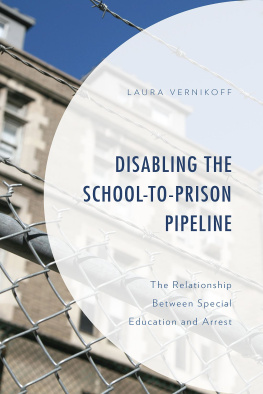
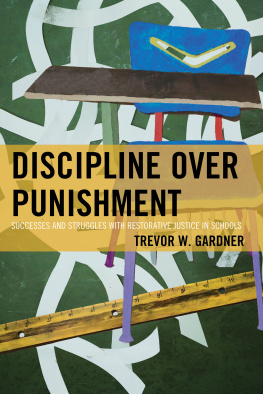
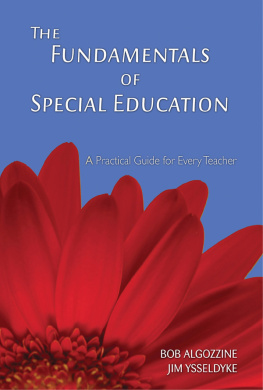
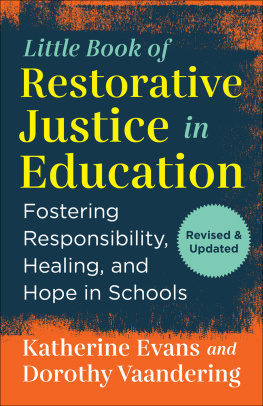
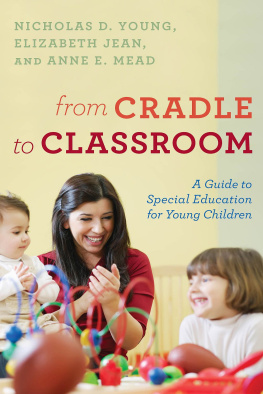
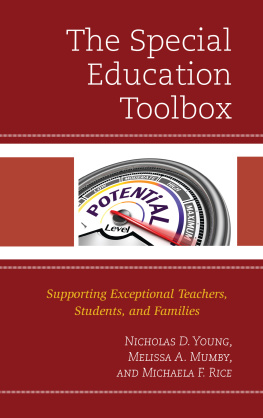
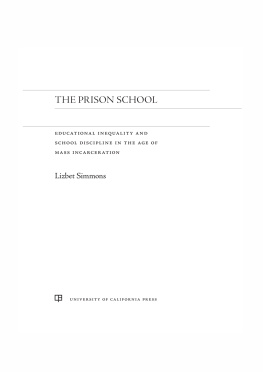
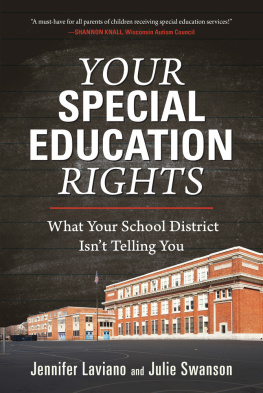
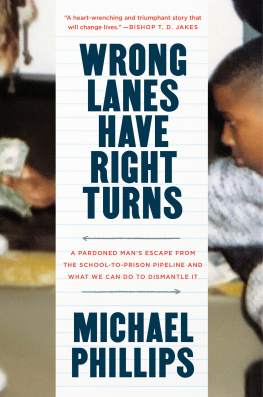
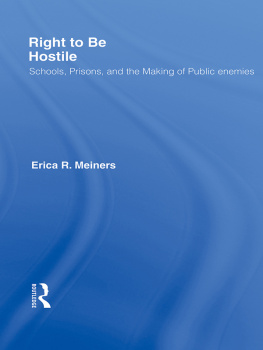

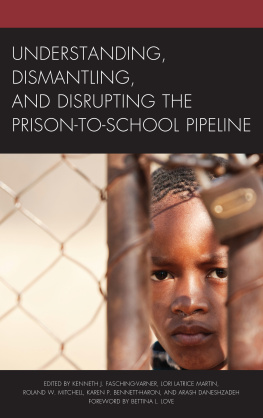
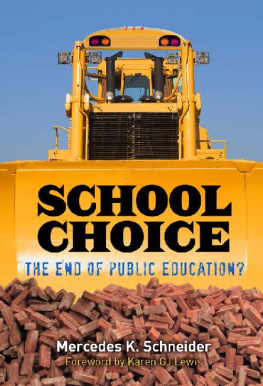

 The paper used in this publication meets the minimum requirements of American National Standard for Information SciencesPermanence of Paper for Printed Library Materials, ANSI/NISO Z39.48-1992.
The paper used in this publication meets the minimum requirements of American National Standard for Information SciencesPermanence of Paper for Printed Library Materials, ANSI/NISO Z39.48-1992.